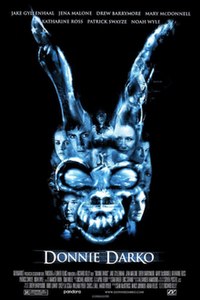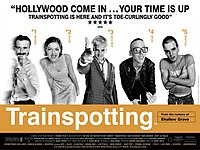books
Fear and Loathing in Las Vegas
Hunter S. Thompson
I recently went to Las Vegas for the first, and probably only, time in my life. I hadn't read this book in years, and previously, it hadn't even been my favorite Hunter S. Thompson work. Thompson is dearly missed by many people, and on a personal level, I miss him deeply. He spoke to a true astonishment at the complete, unrelenting fuckedupedness of America and her politics, and he did it with a bite that was deserved and unmatched. He probably could have been a very rich super-novelist of popular, uninspired filth. He probably could have been a brilliant novelist of any kind. But he chose to do what he did, and he did it better than any of his generation. Like Mark Twain, he chronicled American stupidity in the tongue of his generation, and he captured it perfectly, from the insanity of the drug experience to the depravity of American politics. For years, no work of his stood out to me as much as Fear and Loathing on the Campaign Trail '72 or the Gonzo letters. Fear and Loathing in Las Vegas, to me, wasn't his best work. Then I went to Vegas. Suddenly, all the subtle differences between this and his other work made sense, and I realized that he had captured the true tackiness of the truest tacky city on the entire planet (though Dubai with their fucking Island fantasies are likely to take over soon). Fear & Loathing in Las Vegas IS Las Vegas. It's a nightmare, a joke, a blunder of comical, cosmically-fucked proportions. It's not Sin City. It's where Sin goes to die when it's embarrassed for itself. It's where families go on vacations with ten-year-olds, children who get handed fliers for prostitutes. It's the living, pulsing, filthing embodiment of the Holy Dollar. It's sensory overload on a scale drugs can't equal, a place where you almost have to take a brimful of Valium and a pint of ether to feel normal and not feel utterly ashamed at the state of the human condition. It would make you want to blow your brains out if it weren't so goddamned fun, even if you're gay, you hate gambling and hookers make your brain itch. Yet you never, ever feel like it is evil or subversive or curious in any way. It's just about a buck, and every other blink reminds you of it. This is a place where Hunter S. Thompson could easily mingle with a law enforcement convention and not get noticed. This is a place where a lawyer could leave you with a hotel bill. This is a place where no questions get asked because no answers would make sense, and the only thing profound about any of it is that you know, on a gut level, that all the oil used to produce all the plastic used to build that city no doubt funded an island shaped like Australia that was built off the coast of the UAE over the weekend. This novel will never cease to be important, and one day, as a cultural artifact of a forgotten culture from a forgotten nation, it will be one of the most important anthropological pieces in existence. I wish he'd survived the Bush administration. We need this man.NC




























